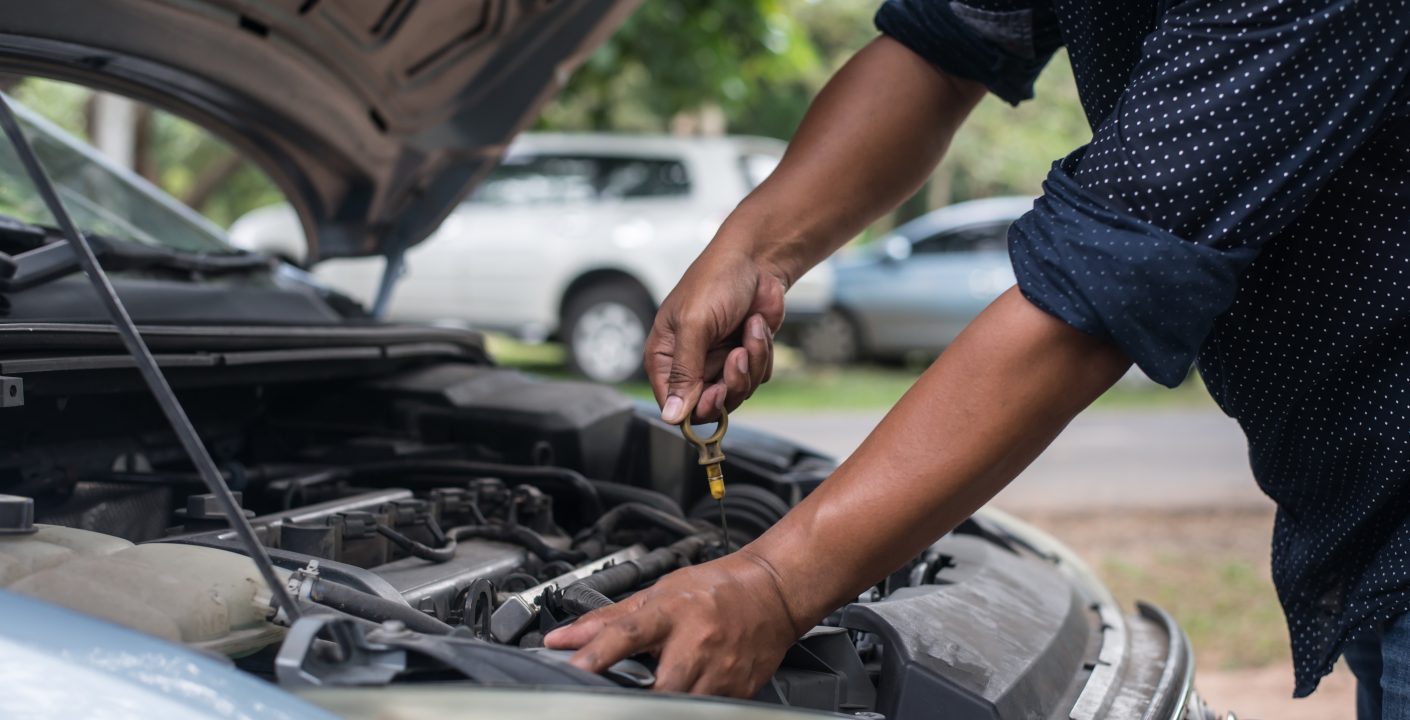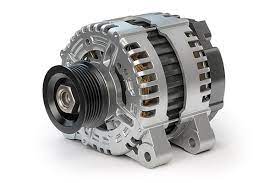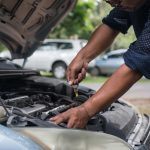Understanding Car Alternator Issues

Your car’s alternator is a critical component of its electrical system, responsible for keeping the battery charged and powering various electrical components while the engine is running. However, alternators, like any other car component, can develop problems over time. Recognizing these concerns early on and implementing preventive maintenance procedures will help you avoid breakdowns and costly repairs. In this post, we’ll look at the most typical indicators of car alternator issues and the causes and key maintenance advice for keeping your vehicle’s electrical system functioning properly.

Identifying Car Alternator Issues:
Dimming or Flickering Lights:
-
- One obvious sign of a looming car alternator issue is dimming or flickering lights, particularly the headlights.
- While driving, you may observe the lights becoming noticeably dimmer or experiencing intermittent flickering, indicating a drop in the electrical power supply.
Dashboard Warning Lights:
- Always observe your dashboard warning lights, particularly the battery light. If it illuminates while driving, it could indicate a problem with the alternator or the car charging system.
- Also, other warning lights related to the electrical system, such as the ABS or check engine light, may signal alternator issues.
Strange Engine Noises:
-
-
- A malfunctioning alternator might make strange noises like grinding, whining, or screeching. These noises may be caused by worn bearings, loose belts, or other mechanical faults in the alternator assembly.
-
Weak or Dead Battery:
-
-
- If your battery continually needs to be jump-started or appears to lose charge quickly, even after being replaced, it may be a symptom of a car alternator issue.
- The alternator is responsible for replenishing the battery’s charge while the engine is running. A malfunctioning alternator may fail to maintain the battery’s charge, leading to repeated battery failures.
-
Electrical Issues:
-
- Various electrical components in your vehicle, such as power windows, radio, or air conditioning, may behave erratically or fail altogether.
- These issues can stem from an irregular power supply due to a failing alternator.
Causes of Car Alternator Issues:
Worn-out Car Components:
-
-
- Over time, the alternator’s internal components, such as the brushes, bearings, or diodes, can wear out due to regular use.
- Excessive heat, vibration, and dirt accumulation can accelerate the wear and tear, resulting in premature alternator failure.
-
Belt Tension and Alignment:
-
-
- Improper tension or misalignment of the car drive belt connecting the alternator to the engine can put the alternator’s pulley and bearings under a lot of stress.
- Loose or misaligned belts might slip or screech, resulting in insufficient power generation and even alternator damage.
-
Electrical Overload:
-
- Excessive demand on the electrical system, such as running multiple accessories simultaneously or using aftermarket high-powered audio systems, can overload the alternator.
- Continuously operating under high electrical loads can strain the alternator, resulting in overheating and eventual failure.
Proactive Maintenance Tips:
Regular Inspection:
-
-
- Schedule periodic inspections of your vehicle’s electrical system, including the car alternator, by a qualified mechanic.
- Examine for signs of wear, damage, or loose connections in the alternator’s wiring harness, belts, and mounting brackets.
-
Keep Belts in Good Condition:
-
-
- Ensure proper tension and alignment of the drive belt connecting the alternator to the engine.
- Replace worn-out or damaged belts right once to avoid car alternator issues caused by belt slippage or breakage.
-
Maintain Cleanliness:
-
-
- Keep the alternator and surrounding components clean from dirt, debris, and corrosion.
- Cleaning the alternator housing and cooling vents regularly will help to prevent overheating and ensure optimal performance.
-
Limit Electrical Load:
-
-
- Avoid overloading the electrical system by running unnecessary accessories simultaneously.
- Consider upgrading to high-quality, energy-efficient components to reduce strain on the alternator.
-
Battery Maintenance:
-
- Keep your vehicle’s battery in good condition by ensuring proper electrolyte levels and terminal connections.
- Regularly check the battery’s voltage and charge status for early detection of any underlying alternator issues.
Your car’s alternator is critical to keeping the electrical system operational and the battery charged. Understanding the indicators of car alternator issues, determining their causes, and taking preventive maintenance procedures can help you extend the life of your alternator and avoid unexpected breakdowns. Remember to take your vehicle to a skilled technician for full inspections and repairs as needed to ensure that its electrical system remains reliable and efficient for many miles.
Image Credit: Image From Jcomp On FreePik And Google







